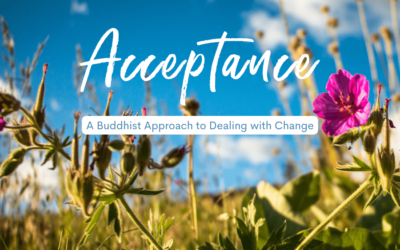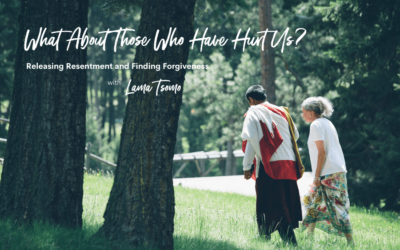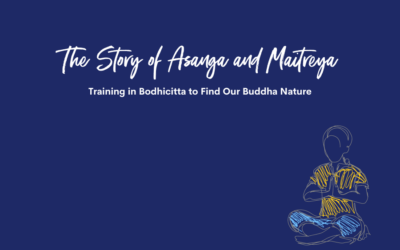Mindful eating allows us to slow down and appreciate the food in front of us, and also thank the many forms of life that came together to provide us nourishment. Below is a simple mindful eating practice to try. Sit in a comfortable position, feet on the floor, spine...
Namchak Community Blog
How to Cope If You’re Feeling Ungrateful this Season
Feeling grateful can be difficult, especially since gratitude is often hyped up as the “thing” to do. How can we learn to accept ourselves as we are instead of being ashamed for feeling ungrateful? First things first. We need to acknowledge that our feelings are...
10 End of the Year Reflection Questions
Now that the year is ending, most people are trying to plan out their New Year’s Resolutions. Before we start that rush, let’s take a moment and appreciate and reflect on how this past year has gone for us personally. Ask yourself: 1. What would you consider to be a...
A Guide to Holiday Parties for the Socially Anxious Introvert
To an introvert, holiday parties sound amazing in theory, but not so much in practice. Does this scene sound familiar? You agree to attend a myriad of parties (ok, just two!) thinking it will be fun. The day of the party arrives and you’re getting ready at a snail’s...
What I Learned About Gratitude from Namchak Khen Rinpoche
I love the lightbulb moments at retreats. Ya’ know that moment where everyone nods together and starts writing down what the teacher said? If you’ve been to a Namchak retreat, or probably any type of class, you know that moment. The simultaneous group smile like,...
Sleep is Self-Care
Self-care and the holidays don’t seem to go together. Rather than trying to add a new activity to our schedules this month, let’s try to improve an already existing habit – sleep! One of the best things we can do for ourselves is get some good sleep. For most of us...
3 Reasons to Volunteer This Holiday Season
When the busyness of the holiday season comes around, it can be easy to get pulled into the “hurry up!” that it brings. From checking things off our to-do lists, prepping for the holidays and attending parties, we can lose sight of what’s important: spending time and...
Mindfulness of Phenomena
We’ve covered the first three Foundations of Mindfulness: body, feelings, and mind. That leaves Mindfulness of Phenomena, the fourth and final Foundation of Mindfulness. The first three involve investigating within ourselves. Investigating phenomena asks us to shift...
Let Your Mind Wander
Lama Tsomo helps us understand what to do with our wandering “puppy” minds while meditating, but what about the mind-wandering that occurs in our everyday lives? In a recent conversation with Lama Tsomo, Dr. Richard Davidson, neuroscientist and founder of the Center...
The Neuroscience
Why meditate? Well, to put it simply, because it works. Neuroscience research shows that when the brain is trained with meditation practices that our habits become a little bit different—and for the better. See below for some recent and exciting meditation research...
Recommended Articles
Acceptance: A Buddhist Approach to Dealing with Change
Our lives often follow some type of routine with expected everyday norms. Sometimes it’s the people we see, the type of work we do, or the kinds of interactions
What About Those Who Have Hurt Us?
“Forgive and forget!” That’s all there is to it, right?! Not quite! In this excerpt from Deepening Wisdom, Deepening Connection
The Story of Asanga and Maitreya
Long ago, in ancient India, a Dharma student named Asanga had a goal: to see the Future Buddha Maitreya, who was already a great bodhisattva




